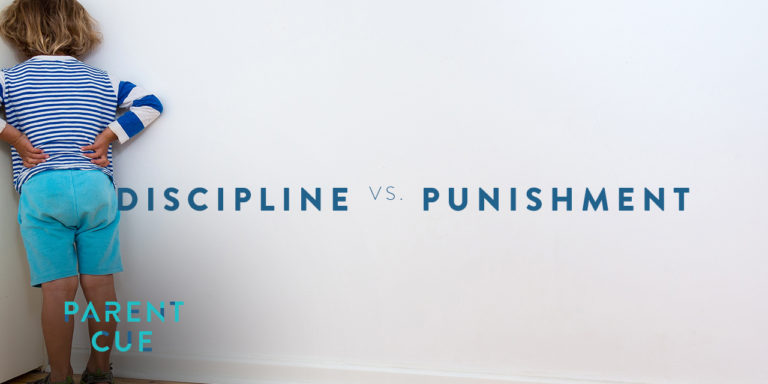
Do you remember how you felt after your first child arrived? If you were like me, you felt a mixture of bliss and fear. Not only was I happy to finally have this baby, but I was also quite afraid. Afraid of not doing it right. Everything was new and unknown. And there wasn’t a playbook for raising my kid. Because apparently every kid is different.
Once I got past how to get the baby to eat or to sleep, I remember becoming uneasy and nervous about what to expect when it came to disciplining our first child. I started reading books on the subject when she was only about 6 months old. And the different methods all felt overwhelming. I didn’t know the answer, but I felt like I was running out of time. My 6-month-old would be breaking the rules at any moment, and I needed to figure out how to discipline her.
Fast forward to 10 years later and to how many times have I said, “I need to punish you” or, “If you break this rule, you will be disciplined.”
And it dawned on me that somewhere along the line, discipline became all about punishment.
But the more I started thinking about discipline the more something didn’t add up. In no other context is discipline talked about as a punishment. Think about it. If you want to build muscle, you discipline your body by lifting weights. If you want to run a marathon, you discipline your body by running every day. If you want to lose weight, you discipline your mind and body to eat a certain way. If you want to grow closer to God, you likely create a discipline of reading your Bible or praying every day. Isn’t it interesting that in all of those scenarios discipline is positive? It’s not an easy process, but in those cases, discipline is about creating something in you that is for good. It’s about establishing some new habits or ways of thinking.
Yet when it comes to our kids, I think we’ve been conditioned to see discipline as something negative. As a reaction or response to negative behavior. Every book I read was about what punishment fit which crime. But maybe discipline isn’t supposed to be all about punishment.
Maybe it’s more about conditioning and training. Maybe discipline is a little more preemptive than it is reactive. Maybe we should approach discipline like a coach would approach a team’s conditioning season. When I played college tennis, we weren’t allowed to actually practice tennis until a couple of months before the first match of the season. So in the off-season, we conditioned. We ran sprints, did circuit training, and lifted weights. We conditioned our bodies to be ready for when the season started.
Maybe that’s how we need to approach disciplining our kids by changing our understanding of the word discipline. We need to treat this point in raising kids like the off-season. We need to condition our kids for when their season starts.
Maybe discipline isn’t all about punishment, maybe it’s more about conditioning and training.
Click To Tweet
But what does this look like?
I think it starts with considering the kind of person you want them to be. Think about who you are as family and what you value. Then, create a conditioning program. Once you understand those things, then you run drills. You condition. You give them opportunities to practice those things.
I adopted 3 things something from my good friend and fellow Parent Cue blogger, Sarah Anderson. She said that she wants her kids to “Be kind; Be brave; Be wise.” If we want our kids to be that, then what conditioning program can I build around it?
We remind them of those things before they walk into the school. When they are spewing nasty words to each other, we ask them stop and say something kind to the other. When they are afraid to do something, we remind me that sometimes in life we do things when we are scared. And when they are not sure what to do about a situation or a group of friends, we ask what the wise thing would do. This is instruction, not punishment.
I’m not saying there isn’t room for punishment. There are times my kids will face consequences for ignoring my training. There will be moments when correction is needed or when consequence is required. But maybe there are even more moments that are opportunities to train our children preemptively in the way we want them to go.
Now let me assure you that I am no parenting expert. I’ve been a mom for 10 years and I still feel like I don’t have a clue. I’m still figuring it out. And what seems to work for one of my kids doesn’t work with the other. But, I do know that seeing discipline outside of the negative connotation and considering the aspect that requires instruction and conditioning has helped me see my role as parent differently.
Source: The Parent Cue






